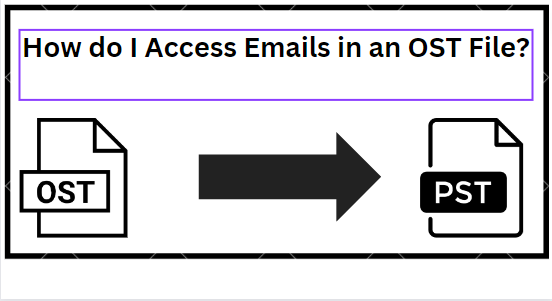How to Build a Strong Ecommerce Team That Supports Your Scaling Business
Making it big in eCommerce is hard. The online shopping market is competitive and you need to overcome a lot of barriers to taste success. But you can do it all. Only if you have the right team by...

Making it big in eCommerce is hard. The online shopping market is competitive and you need to overcome a lot of barriers to taste success. But you can do it all. Only if you have the right team by your side.
Most eCommerce businesses thrive because they have the strategic minds to take the brand to new heights. Minds that have considerable industry knowledge, marketing and selling acumen, and strong cross-functional capabilities are required to run an up-and-coming eCommerce brand.
Let’s check out some of the ways you can build a team that fits your eCommerce vision.
1.Assess Your Staffing Size
The very first thing you need to be aware of is determining your staffing size. Say you’re transitioning from a small-scale store to a medium-sized business. You’ll need to figure out the new teams that will come into the picture: how many of them will be on-site? or how many will be remote? Your organization’s size is determined by sales revenue, expected business growth, brand goals, and future staffing needs.
2.Hire a manager
You’d have different teams that will work interdependently on each other. But as you scale, you also need to have a competitive manager who can effectively guide and direct your teams. This manager will be a connecting link between the upper management and the eCommerce teams. They will overlook the roles, manage business communications and monitor, analyze and improve online sales strategies. It is also important that the manager possesses the technical skills and an understanding of the entire eCommerce order fulfillment process.
3.Hire the Right People for Every Role
If you have a smaller team, chances are a single person is performing multiple roles. But that changes as you scale. You’d need more distinct roles and talent with specific niches that can work towards specific areas of growth such as running ad campaigns, increasing social media presence in an engaging manner, etc.
Along with the manager, you have to figure out the roles and responsibilities of the new team and list down their job descriptions. Start by examining where you can need extra help. For example, if most of your time is spent handling customer queries, you might need to hire customer service representatives and build a support team.
4.Training
Hiring the right people is just the first step in preparing them to become a part of your vision. You further need to invest time and resources in continuous training and development about your brand goals, pricing strategies, and eCommerce tools like order management systems and delivery systems to make them efficient at their tasks.
As you scale, your number of sales, orders, and customers will increase. Your team needs to be equipped with handling the rising workload, using automation where it’s needed, and delegating responsibilities fairly. You also need to train them for professional development so that they have a better chance to stick around and keep improving at what they do.
5.Build a Balanced Team
Ecommerce agency teams need to have a blend of front-end and back-end expertise. While your online store needs to be technically upgraded at all times, so are your operations, customer service, and marketing.
Regardless of what your goals are, they can only be achieved collectively. You cannot market a site that’s not user-friendly nor can you build a fantastic store that has no visibility and visits. Having equal help in all these departments is critical for your eCommerce scalability. At the same time, your operations are what decide if the customer will buy from you again. Strike a balance between all these departments when you build an eCommerce team.
6.Design Personalized Workflows
Everybody works differently. Most businesses are moving from the conventional working system to a new one where employees are given the flexibility to work according to their productivity. Understand what is the working habits of each team member and when they are most productive.
Once you assess every team member, you can prepare the list of tasks beforehand and set up a realistic deadline that they can achieve. Group tasks based on their priority, teamwork, and milestones. This streamlines their tasks on an everyday basis and reduces time wasted in decision-making.
7.Establish Clear Expectations
Establishing expectations from the beginning is the key to having successful operations. Each team member will know exactly what goals they need to achieve and you can establish the type of environment and conditions to achieve the same.
Whether your team works from a central location or remotely, you need to streamline your operations. That’s why you must set clear expectations for your entire team from the word go. It will also give an idea about what team management software to use and how and when to track your team members’ performance.
8.Develop a Culture of Trust
As you focus on enhancing the technical skills of your team, you also need to pay heed to soft skills such as motivation, leadership, teamwork, and so on. These are the skills that take time to nurture and you can only do so if you have a culture of trust.
Things like keeping the employees in the loop of critical decisions, having open-door policies from leaders, psychological safety, and developing an overall employee-centric approach all add to building a productive environment and a culture that boosts morale and trust amongst the employees.
9.Lay a Strong Technical Foundation
Ecommerce isn’t just about developing your online website. It is a game of integrations and creating a tech ecosystem. When you build your team, you need to educate them about taking advantage of the ecosystem and apps to round out your tech needs.
They can leverage the work that’s already done instead to resolve issues faster. You also need to maintain strong relationships with your developers for immediate resolution of website problems and trust them with calls regarding the technical management of your website. An ideal ecommerce team should have seperate software development and marketing teams for optimum results.
Wrapping Up
Your eCommerce team needs to reflect the long-term growth of your online business. They need to have the same faith to scale your brand and work collaboratively with each other to ensure its success. Building your team comes with its own set of challenges. But if you overcome them with the above-mentioned tips, you can build an excellent workforce that works with you and not for you towards your goal.

 Fransebas
Fransebas 
































